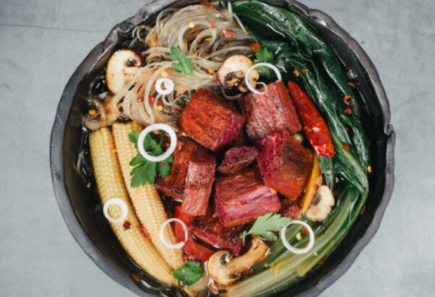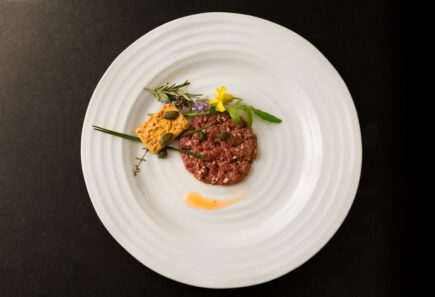Driving protein
diversity
Future-proofing Europe’s food system
People across Europe want a sustainable, secure and just food system. European governments have set some of the world’s most ambitious targets for reducing emissions and farming in harmony with nature – and diversifying our protein supply will be essential to achieve them. We know our current food system needs to change – but we don’t want to give up our favourite foods.
Taste, price and accessibility are non-negotiable for most of us when we’re deciding what to eat – but right now, the most sustainable options aren’t meeting those needs.
So at the Good Food Institute Europe, we champion the science, policies and investment needed to make alternative proteins delicious, affordable and accessible.
By diversifying Europe’s protein supply to include options like plant-based and cultivated meat, we can keep eating our favourite foods while boosting food security, meeting our climate targets and supporting nature-friendly farming.
What are alternative proteins?
The potential of protein diversification
Boosting food security
Recent global shocks have shown the pressing need to strengthen the resilience of agrifood supply chains, and increase Europe’s food sovereignty.
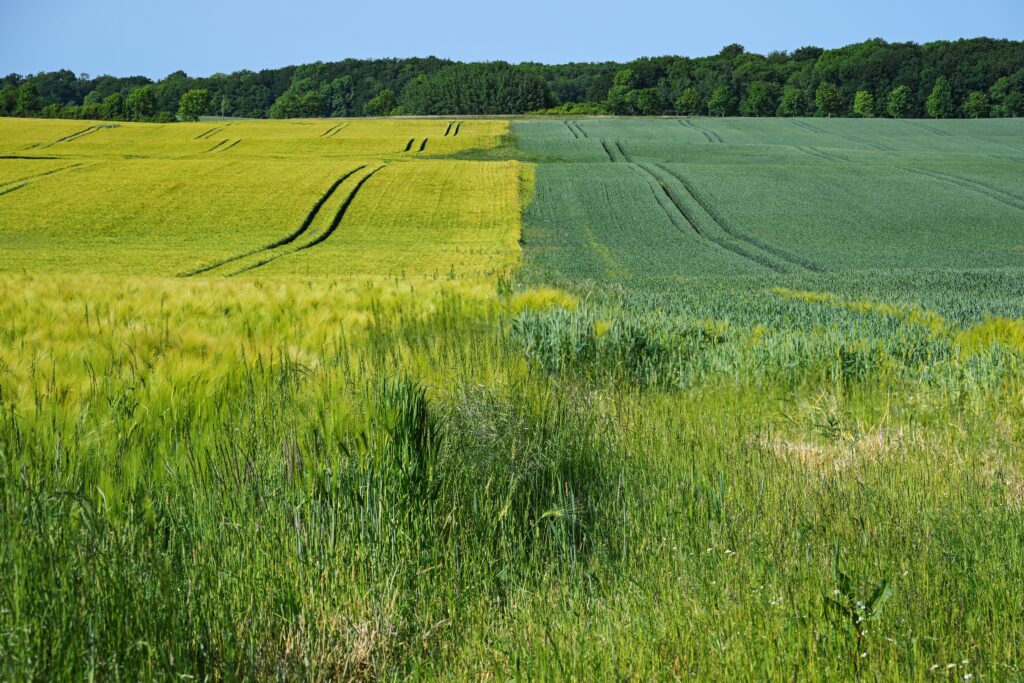
Global demand for meat is projected to grow by at least 52% by 2050, and in Europe we already feed 45% of all the crops we produce to animals and use half of our farmland for animal agriculture. The EU is also the world’s second-largest importer of seafood – depending on other regions for more than two-thirds of the seafood Europeans eat. In an increasingly uncertain world, we need a more sustainable system.
Plant-based and cultivated meat could deliver the meat people want with up to 90% less land, and fermentation can make nutritious food from crops that would otherwise go to waste. Even a modest diversification of protein production could enable 21% of European domestic farmland to transition to agroecological farming, or be used to boost domestic food production or restore natural habitats.
Strengthening economies
Protein diversification can drive green growth and create highly skilled jobs. Europe is well-placed to reap these economic benefits, which – with significant public investment – could add over €900 billion to the global economy and create 10 million jobs by 2050.
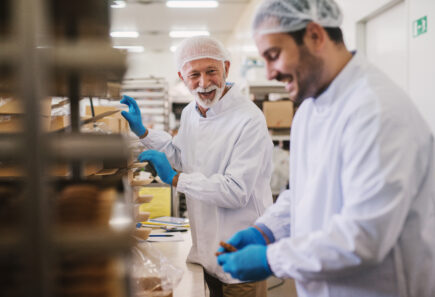
For countries willing to invest, alternative proteins could pay major dividends. According to AgriFoodTure, Denmark could create 27,000 jobs in the plant-based sector, and add up to 13 billion kroner (€1.7 billion) to the Danish economy, with just a small fraction of the growing global market. Research by Green Alliance has found that the UK alternative proteins industry could be worth up to £6.8 billion per year and create 25,000 jobs by 2035.
Europe is currently the world’s biggest market for plant-based meat, and was the birthplace of cultivated meat. Home to some of the field’s most innovative scientists and startups, we have the potential to lead the world on alternative proteins. But as countries like the United States and China begin to invest, Europe risks falling behind as it did with solar energy. Governments must invest now to realise the economic benefits of alternative proteins.
Reducing climate emissions
Research by Oxford University shows that the world cannot meet its climate targets without shifting away from conventional animal agriculture. But in Europe, meat consumption is increasing.
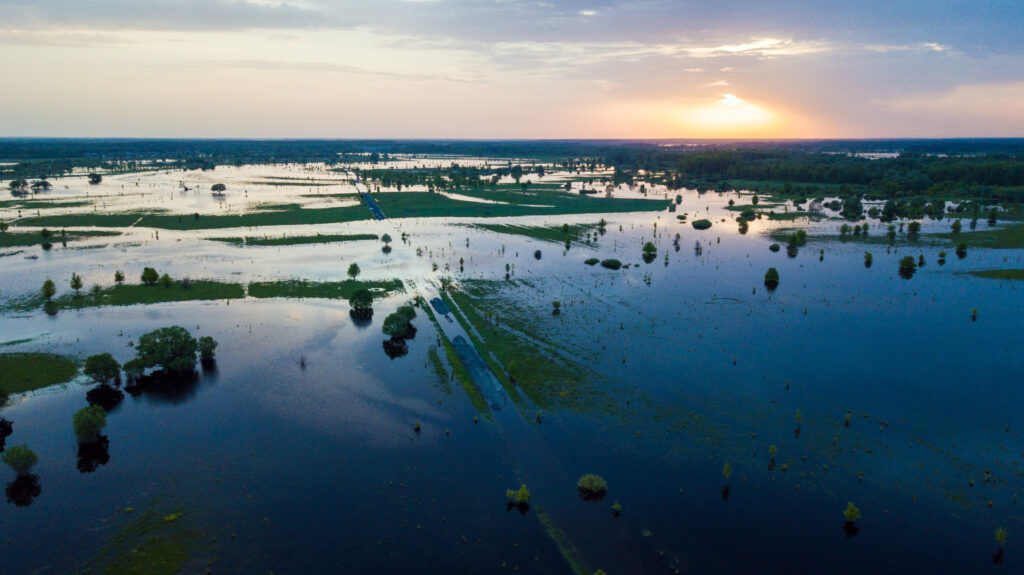
Animal agriculture causes 20% of global greenhouse gas emissions – equivalent to all the planes, trucks, cars, trains and ships on Earth. But to date, protein diversification has received just a fraction of the public and private investment that has gone to other climate innovations such as electric cars and renewable energy, making this a particularly high-impact opportunity. Shifting to plant-based and cultivated meat could reduce climate emissions by up to 92% compared with farming animals – enabling people to eat their favourite foods without accelerating the climate crisis.
Enabling nature-friendly farming
European leaders have set ambitious targets for expanding organic farming and restoring natural habitats to ensure food production works hand in hand with nature. But we simply don’t have enough land to satisfy growing demand for meat with these more extensive approaches – and Europe’s politicians don’t want to tell people to reduce their meat consumption.
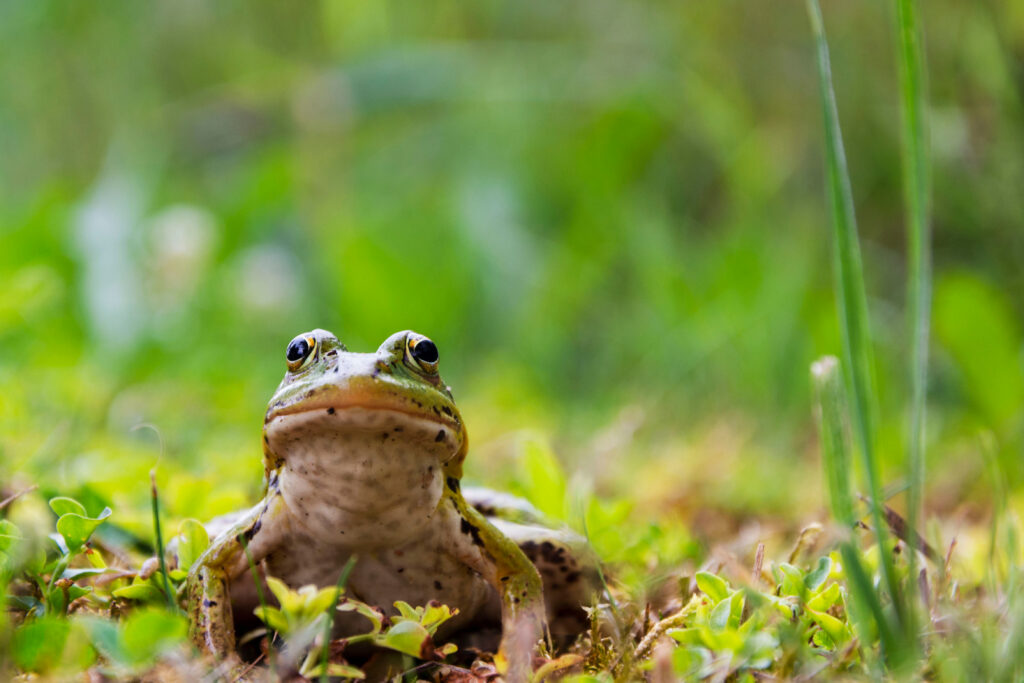
Because alternative proteins could use up to 90% less land to produce the same amount of meat, they can help satisfy demand within Europe’s borders, while creating the space farmers need to adopt extensive, organic and agroecological methods. Research shows that even a modest diversification of protein production could at least double the share of organically farmed land across 10 European countries.
Farmers will also play a key role in a diversified protein supply chain – producing high-quality and sustainable ingredients, and diversifying Europe’s crops to improve nutrition, reduce monocultures and safeguard local production. By putting the right policies, incentives and structures in place, European governments can help farmers to seize these opportunities.
Protecting public health
Diversifying Europe’s protein supply is essential if governments are to address global public health challenges such as diet-related ill health, climate change, antimicrobial resistance and pandemic risk.

Initial studies suggest shifting from conventional meat to plant-based meat could reduce the risk of leading causes of death such as heart disease and bowel cancer, as well as improving gut health and helping people maintain a healthy weight.
Options like plant-based meat can offer consumers convenient foods that are easy to incorporate into their routines as they transition towards healthier diets, alongside existing initiatives to improve the availability and affordability of plant-based whole foods.
Alternative proteins can also be produced without antibiotics – so they can help to reduce the risk of antimicrobial resistance, which causes an estimated 133,000 deaths per year in Europe.
Using animals for food is also a key driver of pandemics. Options like plant-based and cultivated meat can help cut the risk of pandemics because they can be made without farming animals.
Protein diversity in Europe
Europe is the world’s biggest market for plant-based meat, and the birthplace of cultivated meat.
With ambitious climate targets, over a third of the world’s top 100 universities, and many of the world’s global economies, Europe should be a global leader in protein diversification.
But as countries like the United States, China, Singapore and Israel begin to invest, Europe risks falling behind.
GFI Europe is working to ensure the region seizes the opportunity to create local jobs, tackle climate change, and feed a growing population with homegrown alternative proteins.
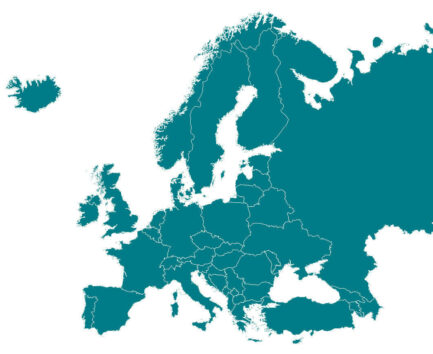
Find relevant resources
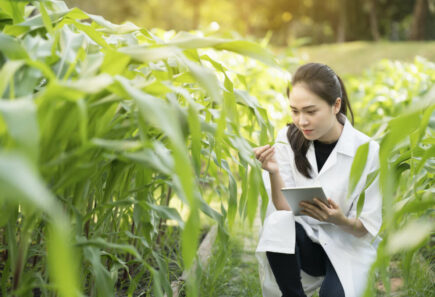
For researchers
Explore the science of plant-based, cultivated meat and fermentation. Discover research ideas, funding opportunities and open-access tools.

For policymakers
Learn more about how plant-based and cultivated meat can help governments address issues like climate change and antibiotic resistance.

For investors and industry
Find opportunities and open-access advice on producing and selling plant-based and cultivated meat.

For journalists
Arrange interviews with alternative protein experts, find photos and facts, and access GFI Europe’s latest press releases.
Latest news
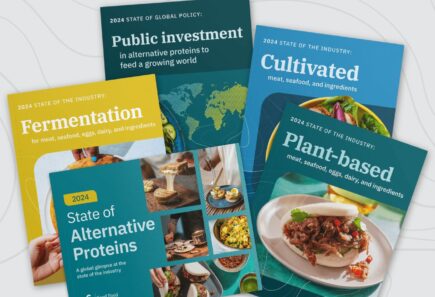
Alternative protein 2024 investment figures mark return to growth but show need for better funding options
The latest investment figures show European privately held companies developing plant-based foods, cultivated meat, and fermentation raised nearly $509 million…
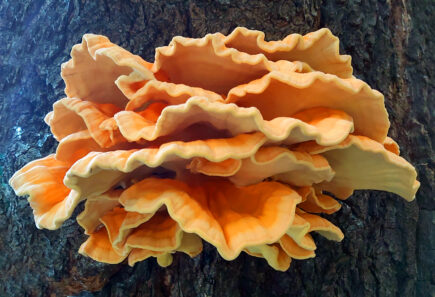
Meet the researcher: Bringing chicken out of the woods and onto the dinner table – the unexplored potential of mushroom foragers’ favourites with Dr Christoph Schwarz
Bringing chicken out of the woods and onto the dinner table – a commonly eaten mushroom popular with foragers is…

UK invests £1.4 million in boosting Food Standards Agency precision fermentation expertise
The UK government has invested £1.4 million in a new innovation hub, enabling the Food Standards Agency (FSA) to expand…
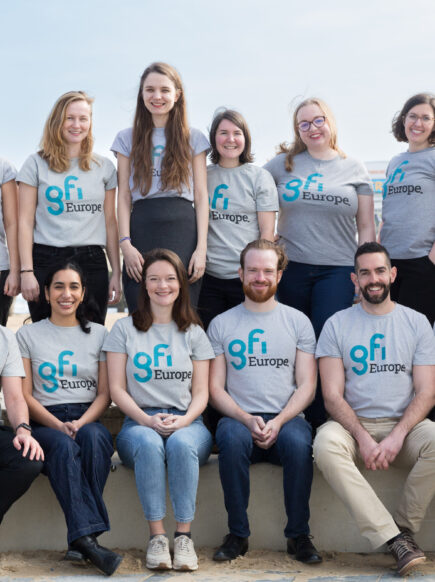
Support the Good Food Institute Europe
Our research, insights, and advocacy are only possible thanks to our generous, global family of donors. GFI Europe is 100% powered by philanthropy. You can fuel this transformative work by supporting us today.
